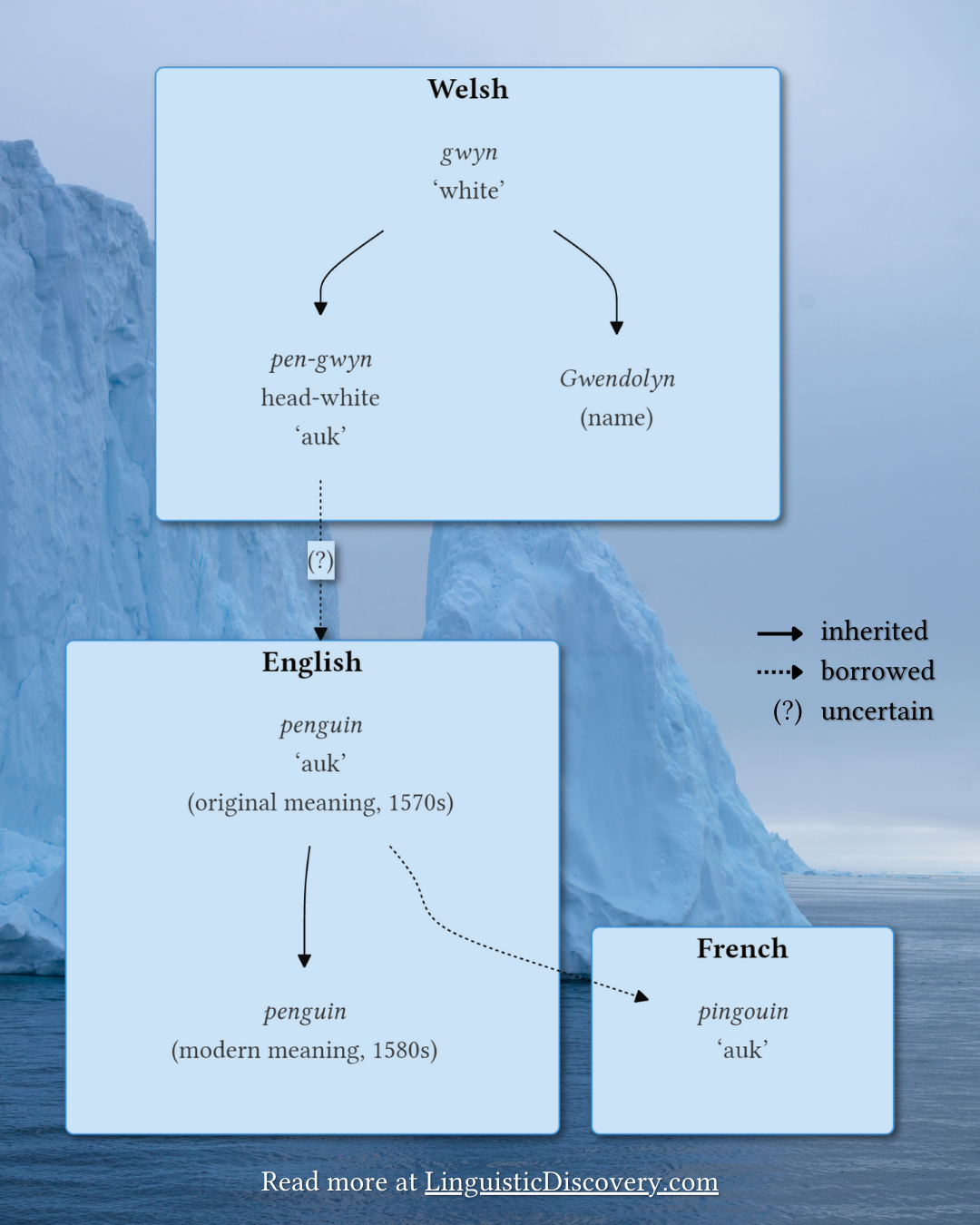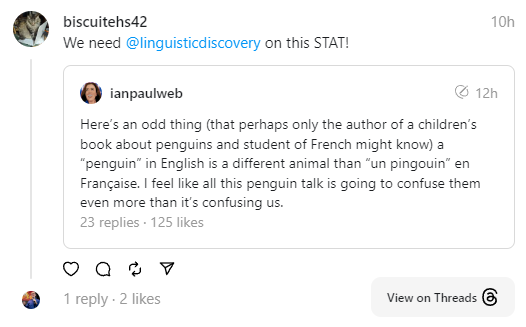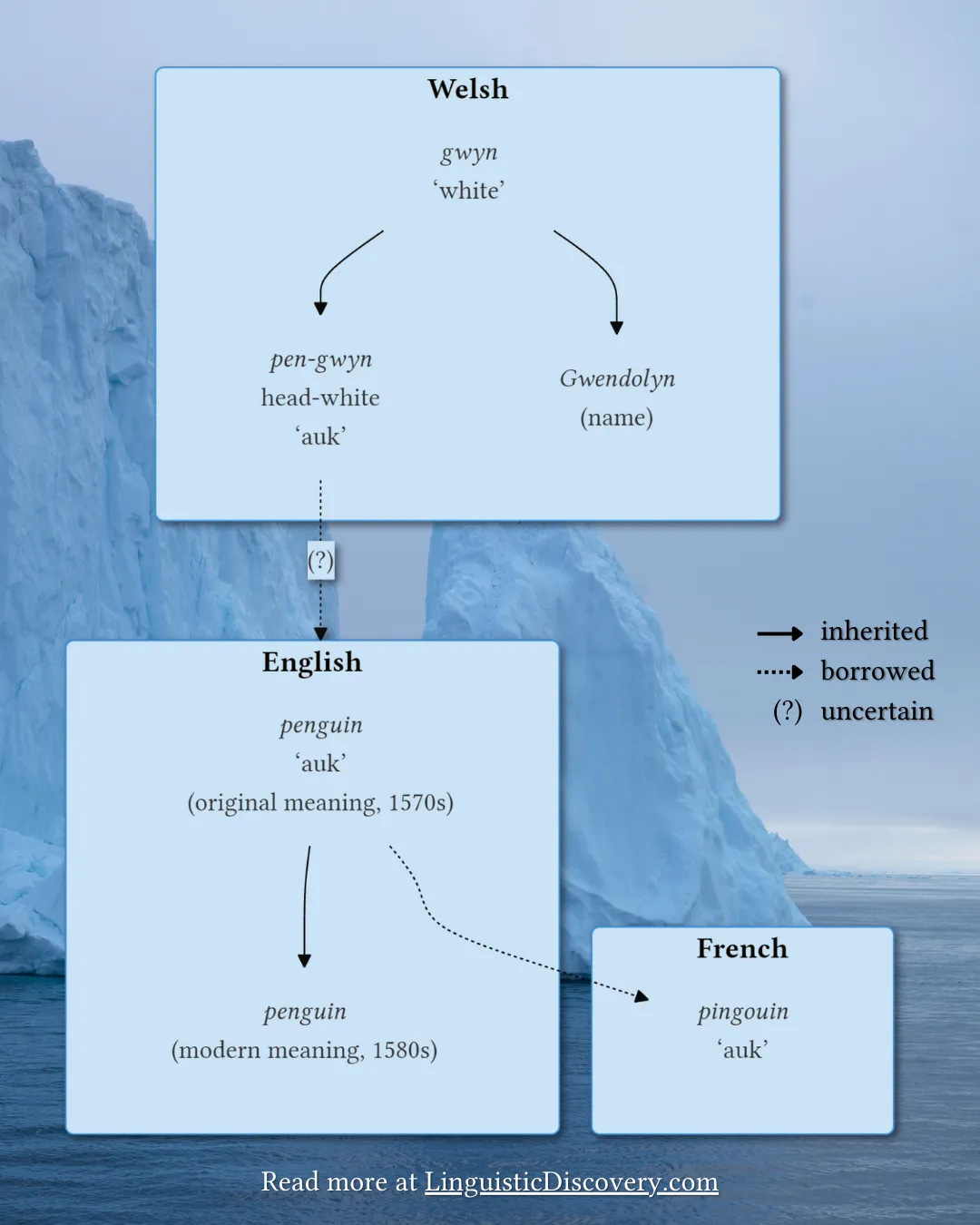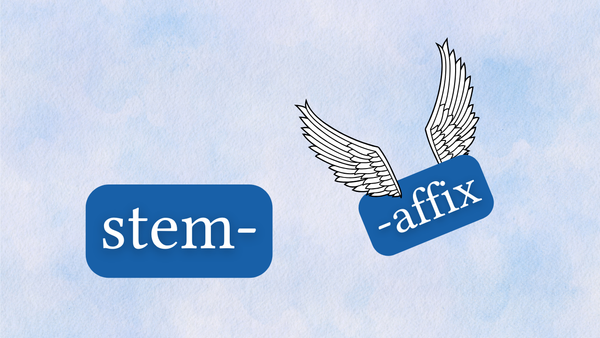The etymology of “penguin”
Where does the word “penguin” come from? French, Welsh, or Latin?

The penguins of Heard Island and McDonald Islands, Australian territories near Antarctica, have been slapped with 10% tariffs by Trump. The internet is reeling with the injustice of it all, and I’ve been summoned to bring all my linguistics skills to bear in aiding the hapless penguins:

Let it never be said that Linguistic Discovery is not a defender of the people. And penguins.
So, like the penguins, let’s dive in.
First, as pointed out in the Threads post, the French word pingouin doesn’t refer to penguins. It refers to a similar-looking bird of the northern hemisphere called the auk. (Auks and penguins are not part of the same family of species. Auks live in the northern hemisphere, while penguins live in the southern hemisphere.)
The word for ‘penguin’ in French is manchot, literally ‘no-armed’, from the Latin mancus ‘maimed, crippled, handicapped’.
Why the discrepancy between the English and the French meanings of penguin/pingouin? Because the English word used to refer to the ‘auk’ too! The word waddled its way into French (after nesting with Dutch for a bit) before the shift in meaning.
Why did the English word penguin change its meaning? For starters, the great auks of Newfoundland, who were the original bearers of the name penguin, went extinct by 1844. Secondly, British sailors likely just applied the name penguin to the similar-looking Antarctic birds when they first encountered them.
If French got the word from English, then where did the English word penguin come from?
Prefer a video version of this post? Watch here!
Our best guess is that it comes from the Welsh words pen ‘head’ + gwyn ‘white’, either in reference to the auk’s white head, or in reference to White Head Island (Pen Gwyn in Welsh) in Newfoundland where the birds lived.
Like the penguins themselves, however, this theory has never really gotten off the ground, because we have no historical documentation of a transition from Welsh pen-gwyn to English penguin. Plus, the /g/ of gwyn would typically be lost in compounds, so if penguin really did come from a compounding of pen and gwyn, the result should have been penwyn. On the other hand, if the name comes from the Welsh name for White Head Island, Pen Gwyn, the sound change wouldn’t have applied.
If penguin does come from Welsh, though, that would make it related to the name Gwendolyn, literally ‘white-haired’ or ‘fair-haired’.
The only other potential etymology for penguin worth squawking about is that it might derive from the Latin pinguis ‘fat’. Some additional evidence for this proposal is that the German and Dutch words for ‘penguin’ are also attentive to its blubbery disposition: German fettgans ‘fat-goose’ and its Dutch cognate vetgans. But this Latin origin wouldn’t explain why the English word ends in an /n/.
So there you have it. Having slipped gracefully beneath the surface of the etymological waters, we surface with our catch of new knowledge—but are still no less certain of its origin.
The complete (putative) etymological flowchart for penguin is below.
🌟 Perks 🌟
📝 early access to chapters of my book, Universal: The diversity of language and the unity of the human mind
➕ bonus articles/videos
👀 early access to articles/videos
💝 support my mission to educate the public about the science and diversity of language!
Price: $5/month (USD)
You can also subscribe on Patreon or Substack if you prefer to use those platforms instead. You'll get all the same content and extras.

📑 Bibliography
- Chambers dictionary of etymology: penguin
- Etymonline: penguin
- OED: penguin
- Wikipedia: penguin




